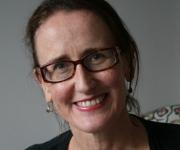WHEN Socrates wrote that the unexamined life was not worth living, he could not have imagined just how over-examined our lives would become.
When we’re not keeping track of our Facebook friends or measuring our online influence score via Klout, we can be collating and sharing the most mundane details with anybody bored enough to take notice on Twitter and other social networking sites.
And just when you think it’s impossible for our species to get any more self-obsessed, along comes the Quantified Self movement.
Described as “self knowledge through numbers”, QS sees devotees collecting and analysing data about themselves, with a particular focus on health. In typical geek-speak, these people talk about “hacking” their bodies to access hidden information.
The movement has been made possible by the ubiquity of both social networking and powerful portable computing — that smart phone you have in your pocket.
A range of relatively inexpensive apps can transform a phone into a medical device delivering minute-by-minute data on everything from sleep patterns to heart rate, all of which can be shared with thousands of your closest friends.
If you have ever sighed inwardly at the sight of a patient clutching a wad of print-outs resulting from a Google search for their symptoms, you might need to prepare for a new deluge of information.
Computer-generated graphs showing a self-monitoring patient’s every vital sign for over the past 6 months are only a heartbeat away.
Dr William Maisel, from the US Food and Drug Administration, last year told an industry workshop it was estimated there would be 500 million people using health-related apps on their phones by 2015.
Having informed patients who are concerned about their own health is a good thing and the technology offers obvious potential benefits.
Public health organisations around the world are developing apps designed to promote healthy behaviours and inform people about health risks, including disease outbreaks and poisons.
Melbourne’s Alfred hospital has put out a free men’s health app that includes a symptom checker and links to useful information.
In the next few years, we are likely to see increasingly sophisticated offerings for patients with chronic disease, allowing them to do everything from monitoring their blood glucose, to tracking the onset of migraine or asthma symptoms.
And, for health professionals, apps that are or soon will be available can effectively turn a phone into an ECG machine, an ultrasound reader, or an autorefractor.
The advantages of this new technology in making health care more portable and less expensive are obvious, especially for people in the developing world.
As with any other medical device, apps designed for professional use will need to be regulated, something US regulators are currently examining.
But those risks are manageable.
The real risk, it seems, is beyond the reach of any regulator — that in constantly examining our lives we forget to actually live them.
Jane McCredie is a Sydney-based science and medicine writer.
Posted 30 January 2012

 more_vert
more_vert
Couldn’t agree more, Jane. In an increasingly self-obsessed and risk-averse society, we are being flooded with information but deprived of wisdom.
What an irony that our community has rejected paternalism in medicine, preferring to believe that an individual is the best judge of their own healthcare (examples – the anti-vaccination and anti-obstertics movements). While orthodox medicine is now more open about not having all the answers, people have moved in droves to the “alternative” practitioners, who have something to offer you for all those symptoms and measurements. And it’s usually a “remedy”, or regular “therapy”. So much for taking personal responsibility for your own health.
Whilst I am a big fan of technology in healthcare the self quantified self movement seems a bit over the top. Equating physical parameters with health is a sure sign that the engineers have taken hold and tried to simplify healthcare to just managing the numbers. Real clinicians understand that there is much more to healthcare than just managing the numbers, it requires an understanding of the person, their society, and the various other determinants. There is a very real place for monitoring, but let’s not forget that we are deaIing with real people not robots.
Disclaimer: I work in health IT and listen to engineers all day, so I really think it is important that clinicians take control of this now!
Excellent article. I think that the excess of information in the
electronic media confuses patients a lot. They’re not always
correctly advised by doctors, who are busy managing the tangle of
information that exists nowadays. I believe the hour has arrived to
return to the aphorism of knowing a little, but knowing it well.